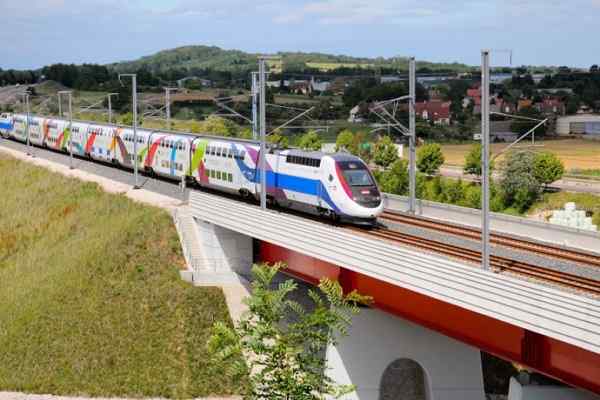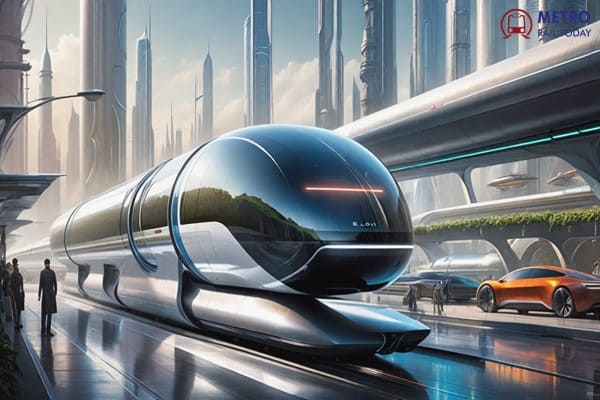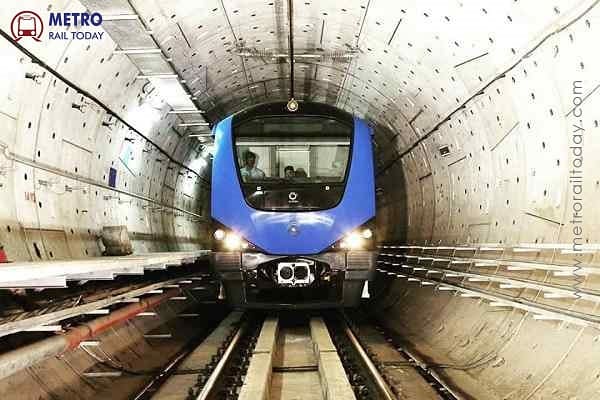 CMRL achieves second Tunnel Breakthrough at Thirumayilai for Chennai Metro Phase 2 Corridor 4
CMRL achieves second Tunnel Breakthrough at Thirumayilai for Chennai Metro Phase 2 Corridor 4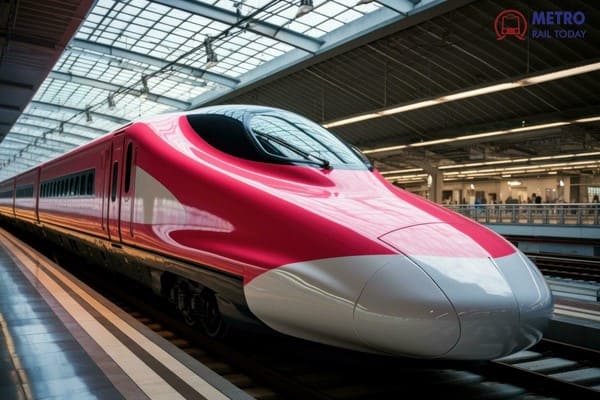 NHSRCL invites Single Tender from BEML for Bullet Train Rolling Stock Package
NHSRCL invites Single Tender from BEML for Bullet Train Rolling Stock Package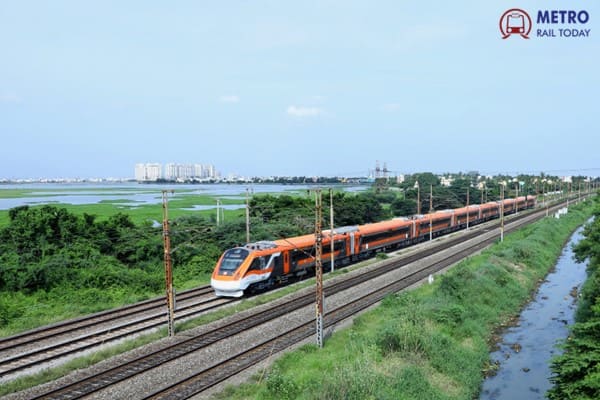 Railway Minister reviews progress of Ahmedabad–Dholera Semi High-Speed Rail Project
Railway Minister reviews progress of Ahmedabad–Dholera Semi High-Speed Rail Project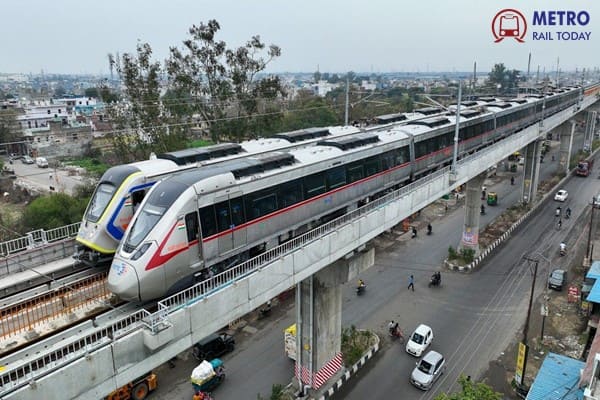 National Planning Group reviews key Rail & Metro projects under PM GatiShakti
National Planning Group reviews key Rail & Metro projects under PM GatiShakti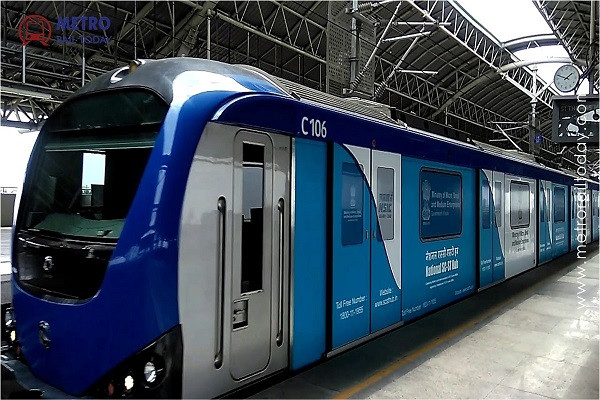 CMRS approves Driverless Metro Operations on first stretch of Chennai Metro Phase 2 Corridor 4
CMRS approves Driverless Metro Operations on first stretch of Chennai Metro Phase 2 Corridor 4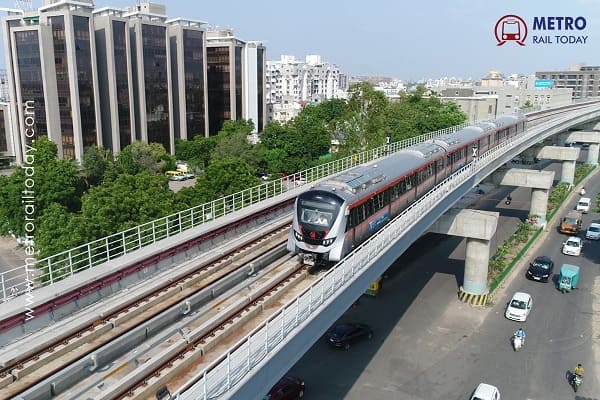 J Kumar Infraprojects completes Final Tunnel Breakthrough for Surat Metro Phase 1 Project
J Kumar Infraprojects completes Final Tunnel Breakthrough for Surat Metro Phase 1 Project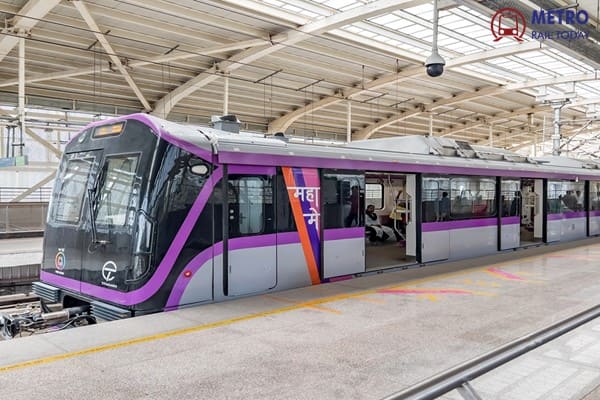 Apurvakriti Infrastructure awarded Ballastless Track Contract for Pune Metro Reach-1 Extension
Apurvakriti Infrastructure awarded Ballastless Track Contract for Pune Metro Reach-1 Extension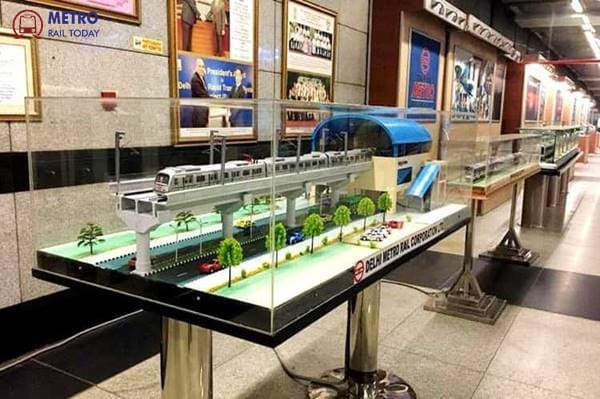 SAM India Builtwell bags first ₹222.76 Crore Civil Contract for Delhi Metro Phase V
SAM India Builtwell bags first ₹222.76 Crore Civil Contract for Delhi Metro Phase V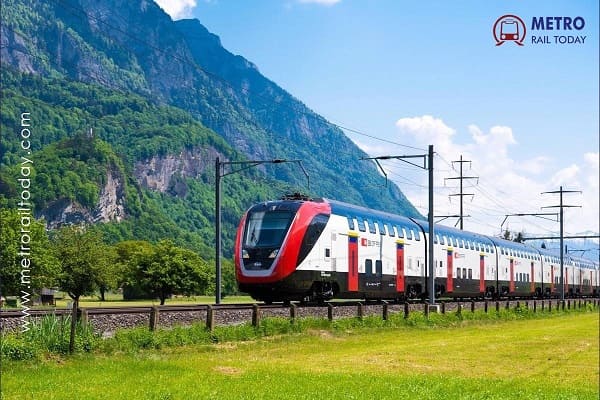 HRIDC conducts Investors Pre-Bid Meeting for Haryana Orbital Rail Corridor
HRIDC conducts Investors Pre-Bid Meeting for Haryana Orbital Rail Corridor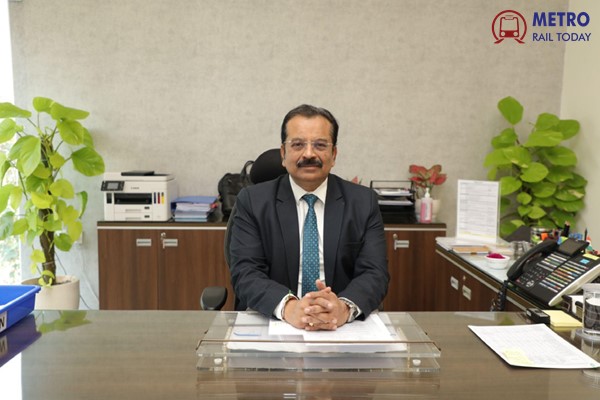 NCRTC Chief Shalabh Goel appointed as General Manager of Central Railway
NCRTC Chief Shalabh Goel appointed as General Manager of Central Railway
Titagarh Rail Systems bags ₹1,598.55 crore Rolling Stock contract for Mumbai Metro Line 6
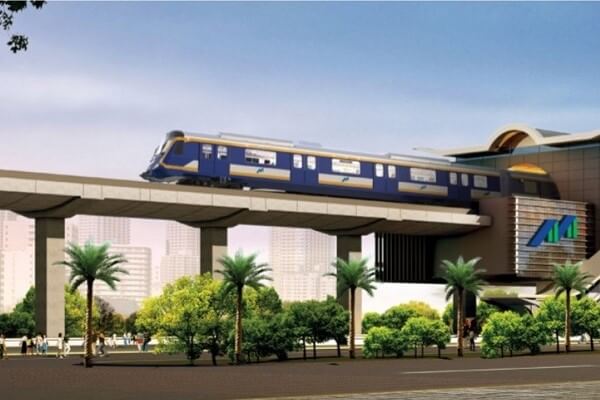
Mumbai, India (Metro Rail Today): In a major boost to India’s urban transportation sector, Titagarh Rail Systems Limited (TRSL) has bagged a landmark contract worth ₹1,598.55 crore to supply 108 coaches for the Mumbai Metro Line-6, solidifying its position as a leading indigenous manufacturer of metro rolling stock. The contract, awarded by NCC Limited on behalf of the Mumbai Metropolitan Region Development Authority (MMRDA), covers the design, manufacture, supply, testing, and commissioning of 18 trains, each comprising six coaches.
The scope of work includes a 104-week execution period, followed by a two-year Defect Liability Maintenance Period (DLMP) and a five-year comprehensive maintenance phase, ensuring long-term service quality and reliability. This contract is aligned with the Government of India’s ‘Make in India’ initiative and will be executed primarily at TRSL’s state-of-the-art facility in Uttarpara, West Bengal, utilizing advanced technology and localized supply chains.
"The margin of this new metro contract remains consistent with the current trend of 9-10 per cent. This will improve once we ramp up capacity, and the ongoing backwards integration is complete," said Pritish Chowdhary, Deputy Managing Director at Titagarh Rail Systems Limited (TRSL).
The Mumbai Metro Line-6, also known as the Lokhandwala–Jogeshwari–Vikhroli–Kanjurmarg Corridor, is a 15.31 km fully elevated line with 13 stations. It is expected to significantly improve east-west connectivity across the city's northern suburbs and reduce traffic congestion on arterial roads. Once operational, the line will intersect with several other metro lines including Metro 2A, 3, 4, and 7, allowing seamless multimodal transfers.
As part of MMRDA’s larger urban mobility plan, this contract award comes at a crucial time. Authorities have confirmed that four new metro corridors — Lines 4, 5 (Phase 1), 6, and 9 — are scheduled to open by the end of 2025. These upcoming corridors will bring extensive connectivity to previously underserved pockets of the city and contribute significantly to reducing the city’s overall carbon emissions.
Further enhancing commuter convenience, MMRDA plans to launch the Mumbai One app, which will offer integrated ticketing, real-time tracking, journey planning, and digital fare payment across the entire metro network — setting a new benchmark for smart urban mobility in India.
The deal also represents another milestone for TRSL, which has been making strategic inroads into India’s metro sector. The company has previously supplied metro trains to systems in Pune, Ahmedabad, and Bengaluru, and has demonstrated consistent execution capabilities across both design and manufacturing.
Speaking on the development, Mrs. Mamta Shah, MD & CEO of Urban Infra Group, remarked, “This landmark order for Mumbai Metro Line-6 reinforces India’s growing capability in delivering world-class, indigenous metro solutions. The alignment of technological innovation, government vision, and private sector expertise marks a transformative moment in urban mobility for Mumbai and sets the stage for cleaner, more efficient public transport across India.”
The awarding of this ₹1,600 crore contract to TRSL reaffirms confidence in India's domestic manufacturing ecosystem and supports the Centre’s vision to scale up metro rail as a sustainable urban transport solution. With the simultaneous commissioning of new corridors and adoption of digital integration platforms, Mumbai’s metro network is on track to become one of the most comprehensive and commuter-friendly in the world by 2026.






